
|
Vol 71 |
Page 18 |
Privacy Policy | Editorial Policy | Profit Policy | Join the Association | List of Members | Contact us | Index | Links
Back Go to page: 1 2 3 4 5 6 7 8 9 10 11 12 13 14 15 16 17 18 19 20 Forward
DVA Issues.
Contents.
DVA Gold Card for vets over 70.
DVA Card Entitlements.
If you are holding a DVA Card, do you know your entitlements. See below:
A broad range of health care and support services are available to meet the clinical needs of eligible veterans and eligible dependants. Health care and support services include:
-
general practitioner services
-
medical specialist services including pathology and radiology
-
allied health services, e.g. podiatry, physiotherapy and other allied health services
-
dental care
-
community nursing
-
spectacles and hearing aids
-
care in public and private hospitals including day procedure centres
-
home support services
-
Subsidised pharmaceuticals under the Repatriation Pharmaceutical Benefits Scheme (RPBS).
-
Medical aids and appliances (Rehabilitation Aids and Appliance Program RAP)
For further information see Health Services Available to the Veteran Community
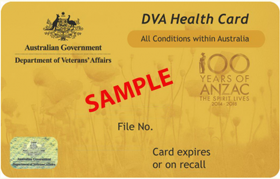
Holders of a Veteran Gold Card (the DVA Health Card - All Conditions within Australia) are entitled to the full range of health care services at DVA’s expense, including medical, dental, optical care and subsidised pharmaceuticals. They are also entitled to medical aids and appliances to assist them to manage their health conditions.
Holders of a Veteran White Card (the DVA Health Card - Specific Conditions) are entitled to be treated at DVA’s expense, including subsidised pharmaceuticals, for their accepted disabilities or illnesses only. Holders of White Cards issued under Non-Liability Health Care (NLHC) treatment arrangements may be entitled to treatment of malignant neoplasm (cancer), pulmonary tuberculosis, or any mental health condition, subject to meeting eligibility conditions. These conditions do not need to be linked to service.
Veteran Orange Card.
Holders of an Veteran Orange Card (DVA Health Card –Pharmaceutical Only) are entitled to subsidised pharmaceuticals only.
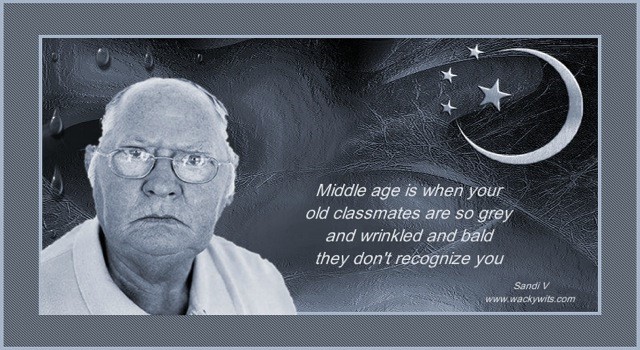
All former serving personnel, of either the permanent or reserve forces, can access a health assessment from their general practitioner (GP). This is a comprehensive health assessment which can help your GP identify and diagnose the early onset of any mental or physical health conditions you may be experiencing.
You need to tell your GP that you have served in the Australian Defence Force (ADF). You will also need to ask your GP about this health assessment who will then be able to treat you or refer you to other services, as necessary.
Allied veterans of certain countries are eligible for health care treatment and access to subsidised pharmaceuticals for service related disabilities or illnesses accepted by the entitled person’s country of enlistment. For further information please see Commonwealth and Other Allied Veterans Living in Australia.
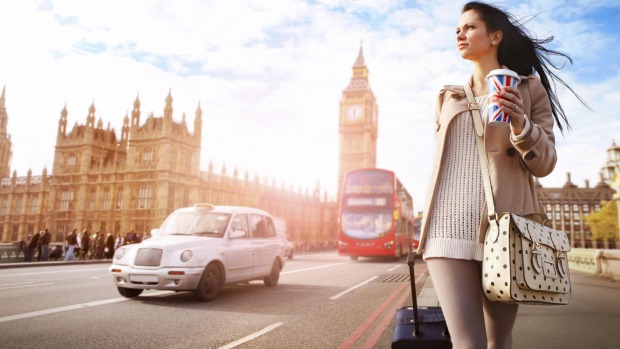
Australian Veterans residing overseas.
Australian veterans travelling or residing overseas, whether permanently or temporarily are entitled to treatment for their accepted disability/ies (ADs) only, regardless of the card they hold. For further information please see Medical Treatment while overseas.
All current and former members of the ADF with at least one day of continuous full-time service (CFTS) are eligible for treatment of any mental health condition. This includes Reservists who have rendered any period of CFTS and national servicemen. Reservists without CFTS may be eligible for mental health treatment if they rendered Reserve Service Days with: Disaster Relief Service (e.g. Operation Vic Fire Assist), Border Protection Service (e.g. Operation RESOLUTE) or involvement in a serious service-related training incident.
Members and former members with certain service are also eligible to receive treatment for cancer (malignant neoplasm) and pulmonary tuberculosis.
Individuals diagnosed with these conditions should contact DVA and they may be issued with a White Card to access treatment.
A White Card for NLHC mental health treatment is issued to eligible transitioning members of the ADF. The White Card allows these clients to access mental health treatment without needing to make a claim.
For further information please see cover for mental health care and cover for cancer and tuberculosis care.
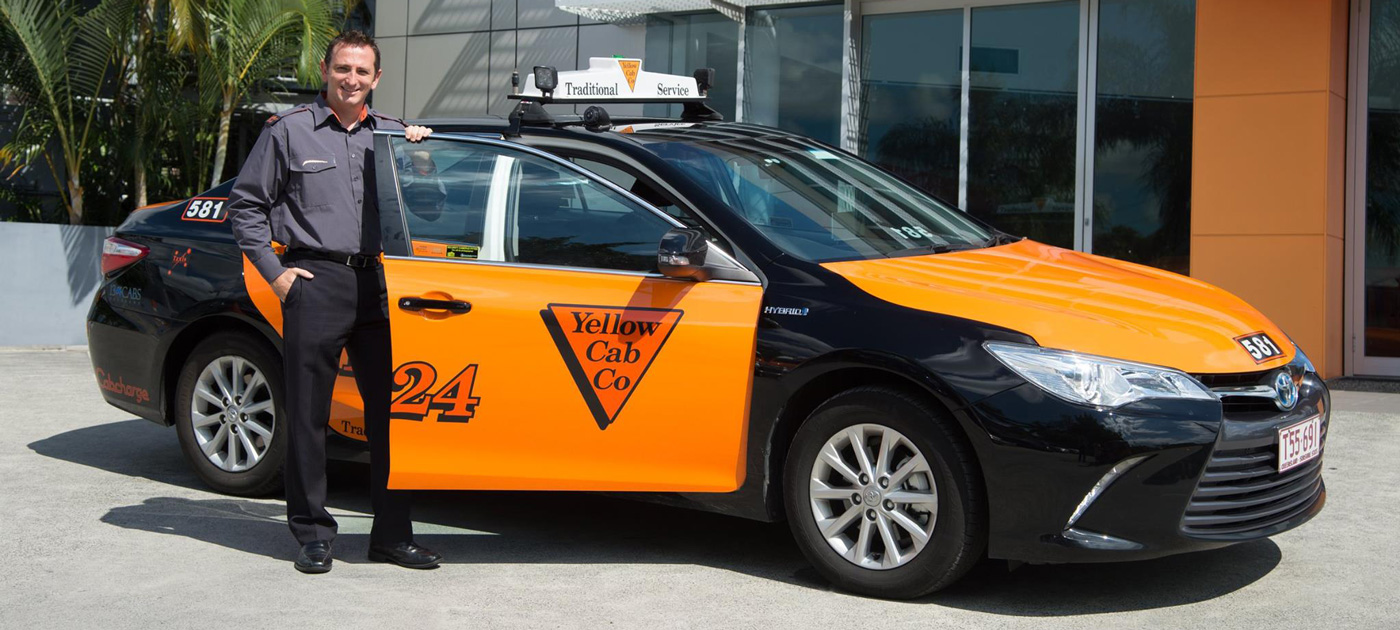
Transport.
The Repatriation Transport Scheme (RTS) allows DVA to provide a pre-booked taxi or hire car service, under the Booked Car Scheme (BCS) for travel to approved treatment locations from your permanent residence. If you are travelling away from home and require medical treatment, DVA can also provide this service to and from your temporary residence.
The Booked Car Scheme is an additional service provided under the RTS that assists more aged and frail entitled persons with assistance to travel to their treatment.
To be eligible for any transport assistance under the RTS you must be a:
-
Veteran Gold Card holder - you are entitled to assistance with transport for the treatment of all health conditions; or
-
Veteran White Card holder - you are entitled to assistance with transport for treatment.
For further information please see Claiming Travelling Expenses Under the Repatriation Transport Scheme.
Rehabilitation support and services provided by DVA are designed to help former ADF members, cadets and declared members to adapt, manage and recover following their service related injury or disease. The aim is to wherever possible, get you back to the same physical and psychological state, and the same social, vocational and educational status as you had before being injured or becoming ill. The program is administered under the Military Rehabilitation and Compensation Act 2004 (MRCA) and Safety, Rehabilitation and Compensation (Defence-related Claims) Act 1988 (DRCA).
To aid recovery and wellbeing rehabilitation support and services are provided through:
-
medical management rehabilitation - this can include assistance to help you understand medical information, co-ordinate treatment appointments, follow treatment programs and track your progress to improve the outcome of your medical treatment;
-
psychosocial rehabilitation - this can help you to manage and live a better quality of life which can also assist you to accomplish your goals. Services available may help you to better manage issues that arise day-to-day and to get more from your life – be that family, friends or the wider community.
-
vocational rehabilitation - provides targeted assistance, based on your needs, to help you achieve meaningful and sustainable employment.
The Veterans’ Vocational Rehabilitation Scheme (VVRS) provided under the Veterans’ Entitlements Act 1986 (VEA) is a voluntary vocational rehabilitation scheme to help eligible veterans who:
-
need special assistance to return to paid work,
-
need to increase their work hours,
-
are at risk of losing their job,
-
are finding it increasingly difficult to maintain their employment; or
-
require help with job seeking activities.
The scheme can provide assistance for those who need to upgrade their skills or undergo short term retraining to gain employment.
For further information please see Rehabilitation or Veterans' Vocational Rehabilitation Scheme (VVRS).
Mental Health
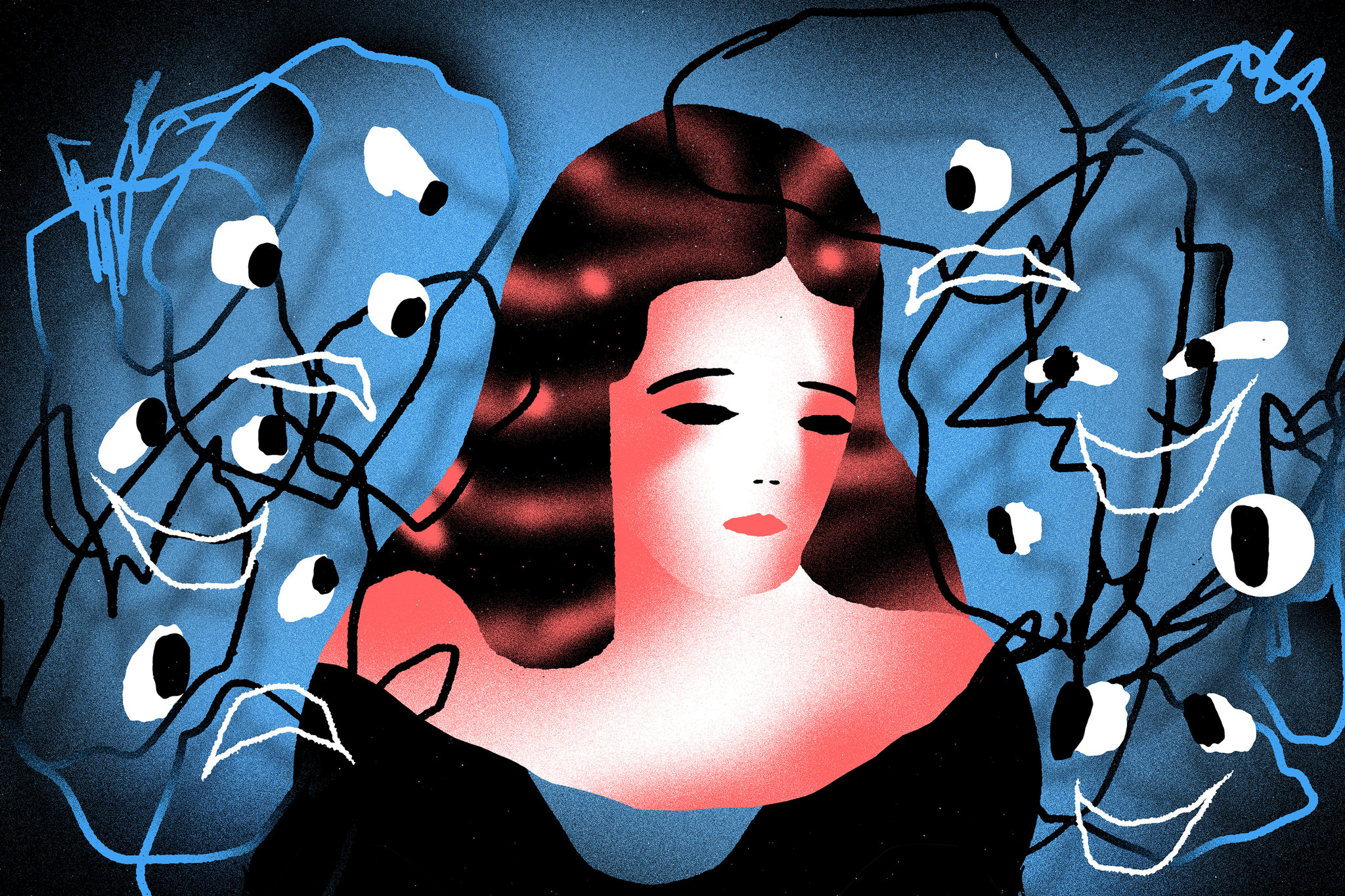
If you are worried about how you are feeling or coping, then take action by seeking support or treatment. You can start by talking to your GP, or you can visit the At Ease website to access videos, self-help tools, mobile apps and advice about how to seek professional help. For more information please see Mental Health Support.
You can also call Open Arms - Veterans & Families Counselling on 1800 011 046. Open Arms is a nationally accredited, military-aware, mental health service. Open Arms provides free, confidential, nationwide counselling and support to current and former Australian Defence Force personnel and their families.
Through its integrated, 24-hour service delivery system, Open Arms:
-
counselling for individuals, couples and families, and support for those with more complex needs;
-
group programs to develop skills and enhance support;
-
after-hours telephone counselling - ensuring support is accessible 24/7;
-
information, education and self-help resources; and
-
referrals to other services or specialist treatment programs as appropriate.
For support, please call Open Arms on 1800 011 046. More information is available at: http://www.openarms.gov.au/
If you have a Veteran Gold Card or a Veteran White Card for a mental health condition, then a wide range of mental health treatments are available to you. This includes treatment from GPs, psychologists, social workers (mental health), occupational therapists (mental health), psychiatrists, or hospital services for those who need it (including trauma recovery – PTSD programmes)
Incapacity Benefits.
Incapacity benefits are payments for economic loss due to the inability (or reduced ability) to work because of injury or disease that has been accepted as service related. Incapacity benefits can be made to current and former ADF members including permanent and Reserve force members, Cadets, Cadet Officers and Instructors and declared members who are incapacitated for service or work as a result of an injury or disease that has been accepted under the DRCA or the MRCA. For further information please see Incapacity for Work.
Permanent Impairment payments.
Current and former ADF members who have an injury or disease as a result of their ADF service, and that injury or disease has left them with some permanent impairment, may be entitled to receive compensation for that impairment from DVA. This compensation is called permanent impairment (PI) payment.

PI payments are paid as compensation for any permanent physical and/or mental impairment in combination with any lifestyle restrictions which the person may be suffering as a result of injuries or diseases which have been accepted by DVA, under the DRCA or the MRCA, as being related to their ADF service. For further information please see Permanent Impairment or You were injured after 30 June 2004.
Veteran payment provides interim financial support to current and former members of the Australian Defence Force (ADF) who have an undetermined claim for a mental health condition under either the DRCA or the MRCA and are incapable of working for more than eight hours per week. Veteran payment can also be paid to partners. The veteran payment is subject to an income and assets test.
For further information please see DVA Veteran Payment Overview and How to access the Veteran Payment.
Pensions - Income Support.
Service pension provides a regular income for people with limited means. A service pension can be paid to veterans on the grounds of age or invalidity, and to eligible partners, widows and widowers. It is subject to an income and assets test.
The age service pension is paid to veterans earlier than the age pension paid by Services Australia, recognising that the effects of war service may be intangible and result in premature ageing and/or loss of earning power. However, the invalidity service pension may be granted at any age before the person turns age pension age.
Service pension is paid under the VEA to Australian veterans and mariners, Commonwealth veterans, and allied veterans and allied mariners who have qualifying service. Commonwealth veterans, allied veterans and allied mariners must also have been an Australian resident for a certain period. In certain circumstances, Partner Service Pension can be paid under the VEA to eligible partners and former partners of veterans, as well as to eligible widows and widowers who are not receiving a war widow/er’s pension.
Income support supplement (ISS) provides a regular income additional to the war widow’s/widower's pension for Australian war widows and widowers (including wholly dependent partners) with limited means. It is also subject to an income and assets test. Supplements and allowances which may be payable in association with service pension and ISS include pension supplement, rent assistance, and remote area allowance.
For further information please see Service Pension Overview, Partner Service Pension, Income Support Supplement Overview, IS58 Qualifying Service in Post-Second World War Conflicts.
Pensions - Disability Compensation.
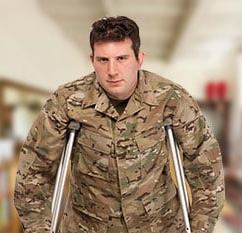
Disability pension is paid under the VEA to compensate veterans for injuries or diseases caused or aggravated by war service or certain defence service rendered on behalf of Australia before 1 July 2004. The amount of disability pension paid depends on the level of incapacity suffered as a result of war-caused or defence-caused injuries and diseases.
Higher rates of pension, such as Special and Intermediate Rates, are known as Above General Rate (AGR) pensions and are payable when the veteran is severely incapacitated and unable to earn a normal wage because of the effects of their accepted condition/s on their capacity to work. The Extreme Disablement Adjustment rate may be considered for veterans who have reached 65 years of age and are not eligible to receive a Special or Intermediate Rate of pension.
Supplements and allowances may be paid in association with disability pension. These include: attendant allowance, loss of earnings allowances, vehicle assistance scheme, clothing allowance, decoration allowance, and recreational transport allowance.
For further information please see Overview of Disability Pensions and Allowances.
Pensions - War widows and widowers.
War widow/er's pension is paid under the VEA to compensate widowed partners of veterans who have died as a result of war service or eligible defence service. The pension will be granted automatically if the deceased veteran was an ex-prisoner of war, had been receiving disability pension at the Extreme Disablement Adjustment, Special Rate, Intermediate Rate, Temporary Special Rate, or at an increased rate for a condition specified in any of items 1 to 8 of subsection 27(1) of the VEA - these items relate to double amputees who may also be blind in one eye. In all other cases a claim needs to be lodged with the Department and the pension may then be granted if the veteran's death is determined to have been caused by war or eligible defence service.
Orphan's pension may also be payable to dependent children of deceased veterans. War widow’s/widower’s and orphan’s pensions are not affected by other income except from other compensation payments.
For further information please see War Widow’s/Widower’s and Orphan’s Pensions.
Compensation may be provided under the MRCA to the dependants of deceased members and former members of the Australian Defence Force (ADF) who die or were severely injured as a result of their service on or after 1 July 2004. For further information please see Compensation for Dependants under the Military Rehabilitation and Compensation Act 2004. Similar compensation coverage may be available under the DRCA, if the ADF member's death relates to injuries and diseases suffered as a result of peacetime and peacekeeping service up to 30 June 2004 and operational service between 7 April 1994 and 30 June 2004. For further information please see How to Claim Benefits under the DRCA.
Subsidised loan assistance and insurance benefits are available to eligible current and former ADF personnel. The Defence Service Homes (DSH) Scheme provides a subsidised loan of up to $25,000 repayable over 25 years to qualifying ex-service men and women (and certain dependents). A Home Support Loan of up to $10,000 is also available to assist with the cost of home maintenance and modifications and other housing-related purposes. For further information, please see Defence Service Home Loans or visit the DHOAS website at www.dhoas.gov.au.
DVA administers the Defence Home Ownership Assistance Scheme (DHOAS) on behalf of the Department of Defence. DHOAS is available to current and former ADF personnel, and their surviving partners, who have served in the ADF after 1 July 2008, completed a qualifying period and accrued a Service Credit. If you served between 15 May 1985 and 30 June 2008, you may have been eligible for the Defence Home Owner Scheme (DHOS), which closed on 30 June 2010. In some very limited circumstances, if you were eligible but unable to apply for your benefits before the scheme closed, you may be able to access benefits under the DHOAS scheme.
For more information phone DHOAS on 1300 434 627 or visit the Previous subsidy schemes – DHOS/DSH page of the DHOAS website at https://www.dhoas.gov.au/previous-schemes-dsh-and-dhos.html.
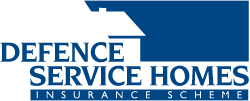
Defence Service Homes Insurance Scheme.
Defence Service Homes Insurance Scheme (DSHIS) provides attractive home, contents and other personal insurance to all persons who are eligible under the Veterans’ Entitlement Act 1986 and/or the above Loan Schemes, regardless of whether they have a DSH or DHOAS loan. For further information please see Defence Service Homes Insurance Scheme.
Other services and support.
DVA provides a range of services and support to assist veterans to manage their service injuries or diseases. This includes assistance with managing domestic tasks such as house cleaning, lawn-mowing, laundry and shopping; assistance with managing your personal care needs; provision of respite services; assistance with modifications to vehicles; and aids and appliances to help you to maintain independence, remain in your home, return to work safely, and improve your quality of life.
For further information please see:
|
Respite Care and Carer Support Rehabilitation Appliances Program
|
Motor Vehicle Compensation Scheme (MVCS) Family Support Package for Veterans and their Families
|
MyAccount.
DVA clients can request to have their own personalised MyAccount. MyAccount allows DVA clients to access many DVA services online such as;
|
Online claims including travel expenses View personal information and update contact details Travel bookings Call back service Update Income & Assets
|
Request a Lump Sum Advance Request official letters View your payments Nominate a representative Qualifying Service check
|
MyAccount can be accessed at MyAccount - Your DVA Services Online.
MyService.
MyService is on online tool that provide access to free mental health treatment, support for service related conditions, tracks the status of the claim, access to a digital DVA health card and information about accepted conditions. MyService is available to current and former serving ADF members and their families. To register for Myservice visit dva.gov.au/myservice.
I’m giving up drinking for a month!
Sorry – bad punctuation.
I’m giving up. Drinking for a month!.
Veteran Support Officers.
DVA Veteran Support Officers are located on over 40 serving bases throughout Australia. These bases are routinely visited by DVA staff to conduct entitlement briefings and assist individuals with information on support available from DVA as well as assisting in the preparation and submission of claims.
For more information visit Veteran Support Officer.
DVA Gold Card for eligible Veterans over 70 years old
Members and readers are reminded that veterans aged 70 years or more who have qualifying service are eligible to receive a DVA Gold card for medical treatment.
To lodge a claim go to the DVA web site and search firstly for Gold card and then “How to get your Gold Card”. This will bring up the form “Application for a Gold card for Veterans of Australia’s Defence Force” DVA form D3057.
When completing the form you can ignore Question 16. We believe that this question is irrelevant and inappropriate and we have requested the department to remove it.
Veterans Affairs
Vetaffairs is DVA’s official newspaper for Australia’s veteran community and which is distributed quarterly. If you would like to receive the newspaper, go HERE.
Monitoring Devices.
DVA has a range of personal monitoring technologies available to eligible veterans and widow/ers.

Accessing and installing a personal monitoring system may be suitable for older veterans and widow/ers if they are self-isolating to protect themselves from exposure to COVID-19. DVA veterans and widow/ers can access fully-monitored 24-hours a day, seven days a week personal response systems in their home or as mobile pendant personal response devices that are designed to keep them safe at home and when out and about. The initial and ongoing costs are covered by DVA if these devices are arranged through DVA.
Personal response devices can be tailored to an individual’s needs, giving the person being monitored the comfort that assistance is never far away and reassuring family and friends that their loved one is able to access help easily, if it is needed.
Technology has greatly improved these devices. Some have additional features like built-in fall detector capabilities and GPS tracking that works where there is a mobile signal. When a device is activated, these systems are supported by an emergency response centre, with someone who will talk directly with the person, if they can. As the emergency response centre is given the person’s location, they can arrange for the appropriate emergency service to attend. The emergency response centre can also notify a user’s nominated family or friends to inform them of the situation.
Personal response systems can be prescribed by an occupational therapist, physiotherapist or a registered nurse following an in-home fall and cognitive assessment. The prescribing health provider will organise the supply and installation through a DVA-contracted supplier and will provide all training in the use of the device and equipment.
You can get more info HERE.
And just like that
having a mask,
rubber gloves,
duct tape,
plastic sheeting
and rope in your
car boot is okay.
Back Go to page: 1 2 3 4 5 6 7 8 9 10 11 12 13 14 15 16 17 18 19 20 Forward